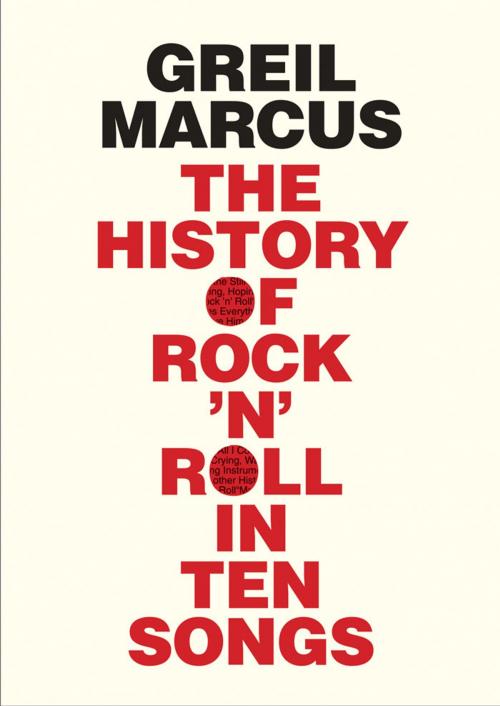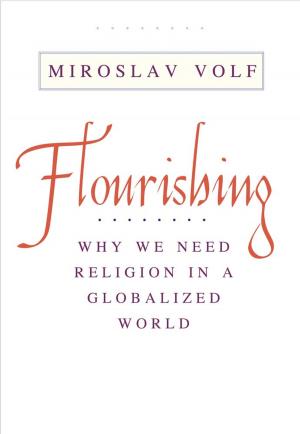History of Rock 'n' Roll in Ten Songs
Nonfiction, Entertainment, Music, Theory & Criticism, History & Criticism, Pop & Rock, Rock, Music Styles| Author: | Greil Marcus | ISBN: | 9780300190304 |
| Publisher: | Yale University Press | Publication: | September 2, 2014 |
| Imprint: | Yale University Press | Language: | English |
| Author: | Greil Marcus |
| ISBN: | 9780300190304 |
| Publisher: | Yale University Press |
| Publication: | September 2, 2014 |
| Imprint: | Yale University Press |
| Language: | English |
Unlike all previous versions of rock ’n’ roll history, this book omits almost every iconic performer and ignores the storied events and turning points that everyone knows. Instead, in a daring stroke, Greil Marcus selects ten songs recorded between 1956 and 2008, then proceeds to dramatize how each embodies rock ’n’ roll as a thing in itself, in the story it tells, inhabits, and acts out—a new language, something new under the sun.
“Transmission” by Joy Division. “All I Could Do Was Cry” by Etta James and then Beyoncé. “To Know Him Is to Love Him,” first by the Teddy Bears and almost half a century later by Amy Winehouse. In Marcus’s hands these and other songs tell the story of the music, which is, at bottom, the story of the desire for freedom in all its unruly and liberating glory. Slipping the constraints of chronology, Marcus braids together past and present, holding up to the light the ways that these striking songs fall through time and circumstance, gaining momentum and meaning, astonishing us by upending our presumptions and prejudices. This book, by a founder of contemporary rock criticism—and its most gifted and incisive practitioner—is destined to become an enduring classic.
“Transmission” by Joy Division. “All I Could Do Was Cry” by Etta James and then Beyoncé. “To Know Him Is to Love Him,” first by the Teddy Bears and almost half a century later by Amy Winehouse. In Marcus’s hands these and other songs tell the story of the music, which is, at bottom, the story of the desire for freedom in all its unruly and liberating glory. Slipping the constraints of chronology, Marcus braids together past and present, holding up to the light the ways that these striking songs fall through time and circumstance, gaining momentum and meaning, astonishing us by upending our presumptions and prejudices. This book, by a founder of contemporary rock criticism—and its most gifted and incisive practitioner—is destined to become an enduring classic.
Unlike all previous versions of rock ’n’ roll history, this book omits almost every iconic performer and ignores the storied events and turning points that everyone knows. Instead, in a daring stroke, Greil Marcus selects ten songs recorded between 1956 and 2008, then proceeds to dramatize how each embodies rock ’n’ roll as a thing in itself, in the story it tells, inhabits, and acts out—a new language, something new under the sun.
“Transmission” by Joy Division. “All I Could Do Was Cry” by Etta James and then Beyoncé. “To Know Him Is to Love Him,” first by the Teddy Bears and almost half a century later by Amy Winehouse. In Marcus’s hands these and other songs tell the story of the music, which is, at bottom, the story of the desire for freedom in all its unruly and liberating glory. Slipping the constraints of chronology, Marcus braids together past and present, holding up to the light the ways that these striking songs fall through time and circumstance, gaining momentum and meaning, astonishing us by upending our presumptions and prejudices. This book, by a founder of contemporary rock criticism—and its most gifted and incisive practitioner—is destined to become an enduring classic.
“Transmission” by Joy Division. “All I Could Do Was Cry” by Etta James and then Beyoncé. “To Know Him Is to Love Him,” first by the Teddy Bears and almost half a century later by Amy Winehouse. In Marcus’s hands these and other songs tell the story of the music, which is, at bottom, the story of the desire for freedom in all its unruly and liberating glory. Slipping the constraints of chronology, Marcus braids together past and present, holding up to the light the ways that these striking songs fall through time and circumstance, gaining momentum and meaning, astonishing us by upending our presumptions and prejudices. This book, by a founder of contemporary rock criticism—and its most gifted and incisive practitioner—is destined to become an enduring classic.















